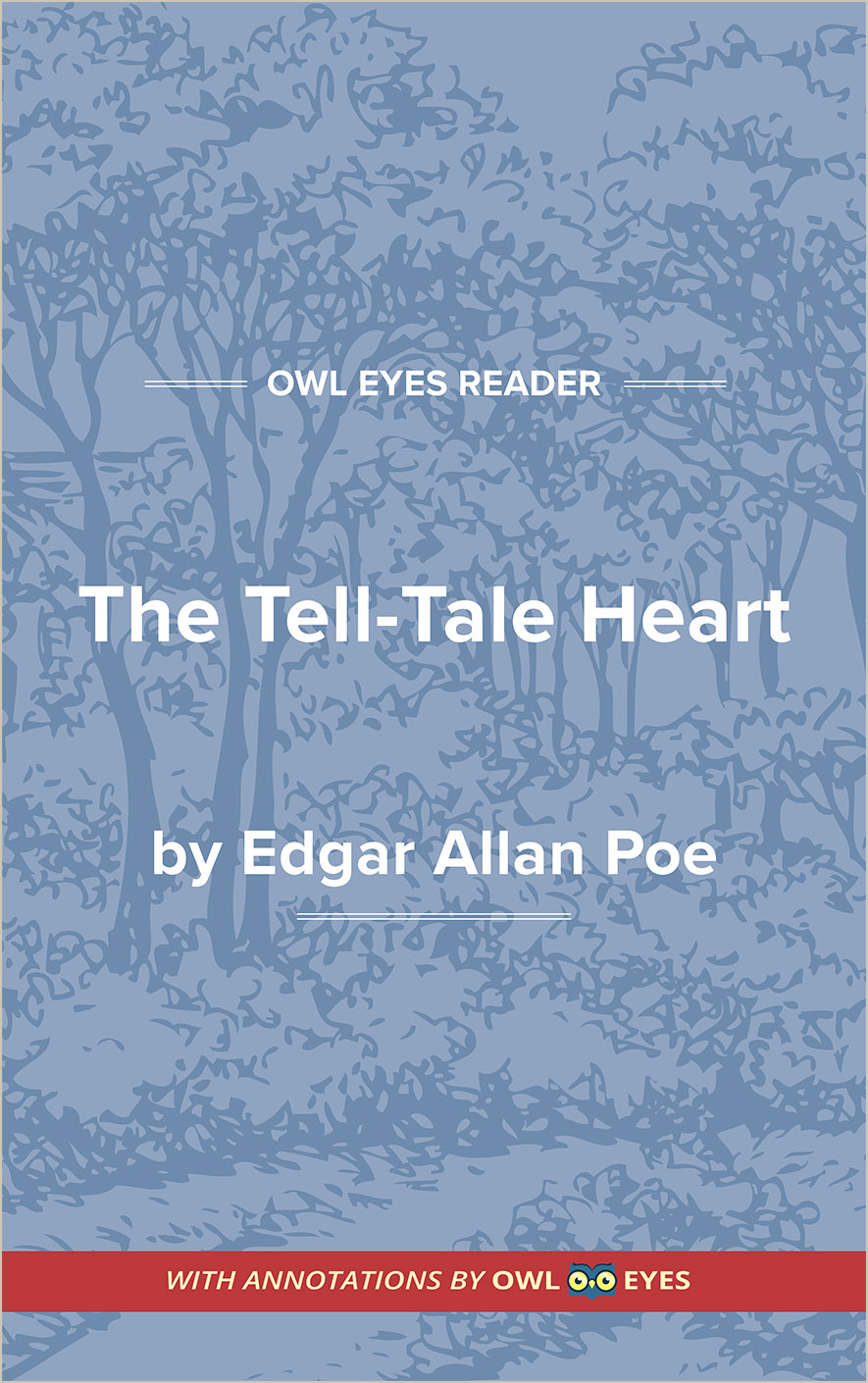Analysis Pages
Themes in The Tell-Tale Heart
Guilt: “The Tell-Tale Heart” is conventionally read as a moralizing story about guilt and innocence. Critics have interpreted the sound of the beating heart as the narrator’s guilty conscious reminding him of his deed. In this reading, the narrator finally confesses his crime because his guilt grows so great that he can no longer hold it in. However, this reading of his confession is incongruous with his character. At the beginning of the story, the narrator disassociates himself from the crime, claiming that an invisible force acted on him. The narrator’s insistence that he is sane and the old man’s eye is at fault suggests that the narrator does not regret his action; he blames the murder on external forces that he could not control.
Fear of Mortality: Another reading of the story claims that the narrator kills the old man and confesses because of his own fear of mortality. The way in which he describes the “vulture-eye” and the old man suggests his fixation on the man’s age and frailty. He hears “death-beetles” in the walls and appears obsessed with time. Once he murders the old man, time seems to stop for him as he loses track of it: he conflates hours and stops focusing on the ticking of clocks. Then, the narrator begins to feel physical symptoms of disease. He grows weak and infirm. At this point, the police come to the house, and the sound of the heartbeat fills his head. This heartbeat can be interpreted not as guilt, but as the narrator’s heightened awareness of his mortality and terror that he will eventually die just as the old man did.
Time: Time is a consistent theme and motif throughout the story. The narrator seems fixated on time. He catalogues exactly how much time he spends watching the old man before the murder. When he finally kills the old man, he claims that the old man’s “hour had come.” Sound also contributes to this theme. He hears “death beetles,” a type of beetle that sounds like a clock ticking, in the walls; he hears a watch ticking; he hears the old man’s heart beat
Themes Examples in The Tell-Tale Heart:
The Tell-Tale Heart
🔒"hideous heart!..." See in text (The Tell-Tale Heart)
"kind—no..." See in text (The Tell-Tale Heart)
"my own bosom..." See in text (The Tell-Tale Heart)
"work..." See in text (The Tell-Tale Heart)
"healthily—how calmly..." See in text (The Tell-Tale Heart)
"I kept quite still and said nothing. For a whole hour I did not move a muscle, and in the meantime I did not hear him lie down. He was still sitting up in the bed listening;—just as I have done, night after night, hearkening to the death watches in the wall..." See in text (The Tell-Tale Heart)

